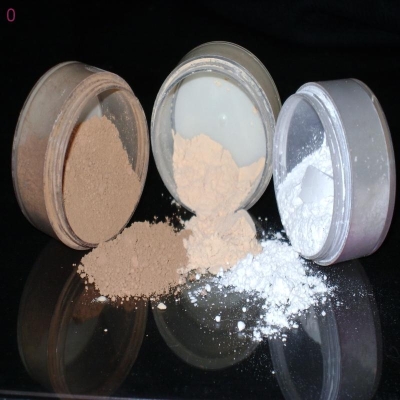Chinese scholars have found that reprogramming T-cells enhances cancer immune efficacy
-
Last Update: 2021-03-04
-
Source: Internet
-
Author: User
Search more information of high quality chemicals, good prices and reliable suppliers, visit
www.echemi.com
scientists at St. Jude Children's Research Hospital in the United States have discovered a molecular "brake" that limits the effectiveness of step cell therapy.
this new treatment strategy can enhance the effectiveness of cancer immunotherapy, thereby slowing tumor growth and prolonging the life of cancer mice.
published the study at 2 p.m. Beijing time on December 12, 2019.
this finding offers a good prospect for the development of more effective step cell therapies, such as CAR T-cell therapy.
the purpose of immunotherapy is to use the patient's own tumor-specific T-cells for anti-cancer treatment.
these T cells are collected, amplified, and adjusted if necessary before they are returned to the patient.
some patients have a good response to treatment, but step cell therapy is less effective in the treatment of solid tumors.
"Our goal is to improve the durability of tumor-specific T cells and their anti-tumor efficacy," said Dr. Chi Hongbo, a researcher in the Department of Immunology at St. Jude Children's Hospital and co-author of the paper. Our research shows that tumor-specific T-cells can be reprogrammed to have both better durability and strong lethality. The results of this study's preclinical model are exciting. Us ing crispr-Cas9 technology, the researchers conducted in vivo screening experiments and identified a molecule in tumor-specific T cells, REGNASE-1.
molecules play a role in suppressing the anti-tumor immune response.
reGENASE-1 was removed, the life span, efficacy, and accumulation of T-cells were significantly enhanced.
mice treated with leukemia and melanoma who received REGASE-1 knock-out t-cell therapy lived longer and had smaller tumors than mice treated with controlled T-cells.REGNASE-1 was previously thought to inhibit the activity of T cells.
Wei Jun, of the Department of Immunology at St. Jude Children's Hospital, said: "This study shows that REGNASE-1 also inhibits two important T-cell signaling pathways. He
Long Lingyun, co-lead author of the study.
study, Dr. Wei Jun found that transcription factors BATF and TCF-1 are new targets for REGNASE-1.
BATF promotes T-cell metabolism and enhances T-cells' ability to accumulate and kill tumor cells.
TCF-1 extends T cell life.
, stressed: "The conventional view is that these processes inhibit each other, and increasing the anti-tumor activity of T-cells means that T-cell life is affected. But our research shows that knocking out REGANASE-1 can simultaneously enhance the killing activity and cell life of tumor-specific T cells. He and his team believe that combined therapy is a new direction for clinical cancer immunotherapy.
to further enhance the clinical application prospects of the study, they conducted a secondary screening of CRISPR-Cas9 and found that when the signaling factor pTPN2 or SOCS1 and REGNASE-1 were knocked out together, the effectiveness of T-cell therapy for mouse tumors could be further improved.
. Chi Hongbo added, "We hope to move this research forward and explore the possibility of using REGASE-1 as a new target for cancer treatment." , an immunologist, obtained his Ph.D. from the University of Rochester and studied immunology at the Richard Flavell Laboratory at Yale University School of Medicine. He worked independently at St. Jude Children's Research Hospital in 2007 and is now a researcher and Professor Robert Webster. Mainly engaged in immuno-metabolism and systemic immunology research, including T-cell-mediated adaptive immune signaling and metabolic pathline research, as well as tyrus cell-mediated T-cell response has made outstanding academic achievements.
This article is an English version of an article which is originally in the Chinese language on echemi.com and is provided for information purposes only.
This website makes no representation or warranty of any kind, either expressed or implied, as to the accuracy, completeness ownership or reliability of
the article or any translations thereof. If you have any concerns or complaints relating to the article, please send an email, providing a detailed
description of the concern or complaint, to
service@echemi.com. A staff member will contact you within 5 working days. Once verified, infringing content
will be removed immediately.







